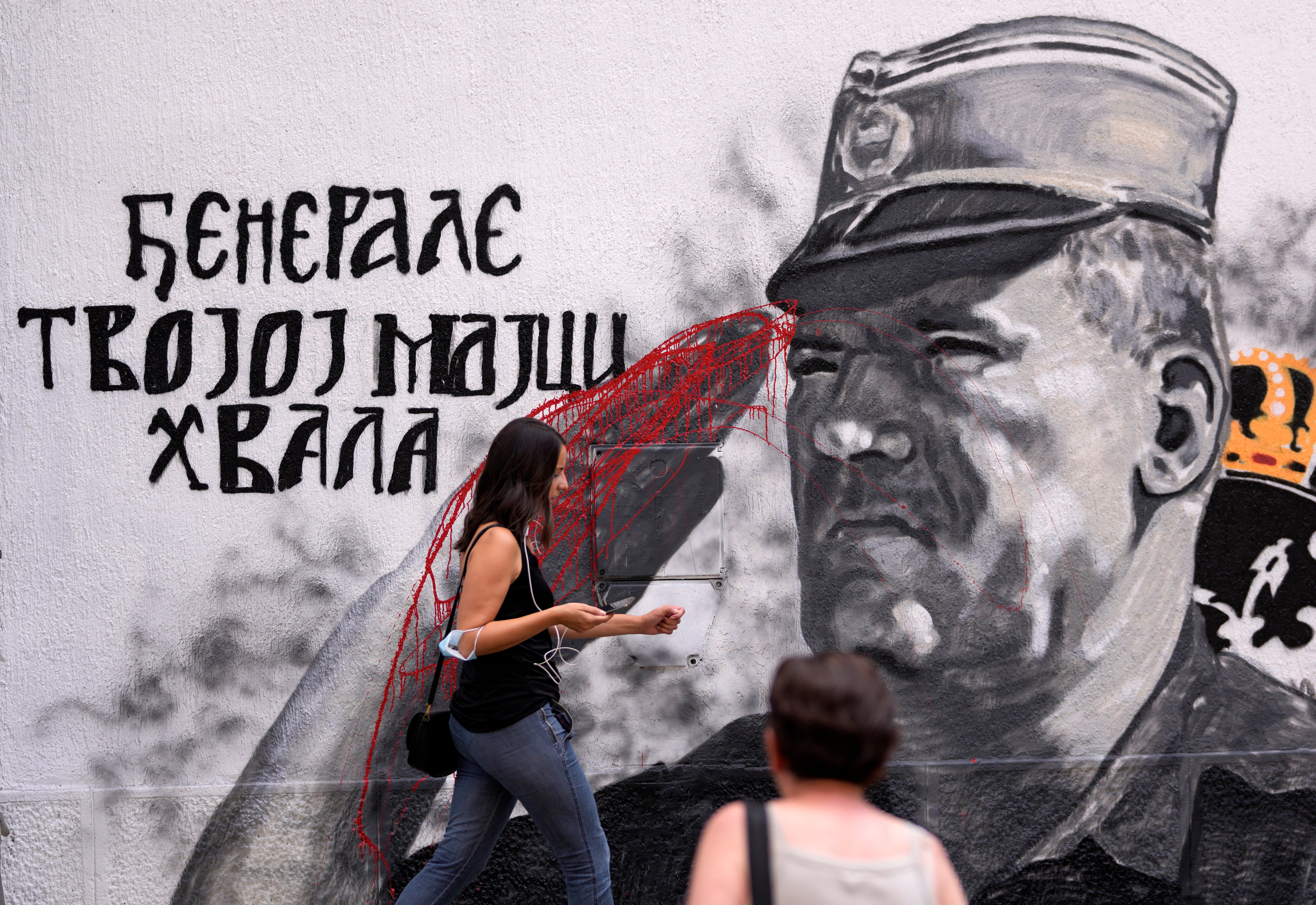Bosnian Serb politicians decry outlawing of genocide denial
Bosnian Serb political leaders have pledged to block decision-making in the country's institutions to protest a recent move by the top international envoy in Bosnia to outlaw genocide denial

Your support helps us to tell the story
From reproductive rights to climate change to Big Tech, The Independent is on the ground when the story is developing. Whether it's investigating the financials of Elon Musk's pro-Trump PAC or producing our latest documentary, 'The A Word', which shines a light on the American women fighting for reproductive rights, we know how important it is to parse out the facts from the messaging.
At such a critical moment in US history, we need reporters on the ground. Your donation allows us to keep sending journalists to speak to both sides of the story.
The Independent is trusted by Americans across the entire political spectrum. And unlike many other quality news outlets, we choose not to lock Americans out of our reporting and analysis with paywalls. We believe quality journalism should be available to everyone, paid for by those who can afford it.
Your support makes all the difference.Bosnian Serb political representatives have pledged to block decision-making in the country’s institutions in protest over a recent move by the top international envoy in Bosnia to outlaw genocide denial.
“We will not live in a country where someone can impose a law by simply publishing it on his website,” Milorad Dodik, the Serb member of Bosnia’s joint presidency, said Monday.
Dodik spoke after a meeting of leaders of all Bosnian Serb political parties to discuss the imposition on Friday by U.N. High Representative to Bosnia Valentin Inzko of changes to the country’s criminal code. The imposed changes introduce prison sentences of up to five years for genocide denial and the glorification of war criminals.
Dodik repeatedly said over the weekend that Inzko’s decision should serve as a final push for secession of Bosnian Serb lands from the rest of the country.
In a decision published after their meeting on Monday, Bosnian Serb political representatives said they considered Inzko’s decision “unacceptable and void,” announcing they will confront it by boycotting the work of the country’s multi-ethnic presidency, parliament and government.
Under the terms of the 1995 Dayton Peace Agreement that ended Bosnia’s 1992-95 interethnic war, the country was carved into highly autonomous Serb-run Republika Srpska and a federation shared by Bosniaks and Croats. The two are linked by joint institutions and all the decisions on the state level have to be reached by consensus of the three ethnic groups.
As the top international envoy overseeing implementation of the peace agreement, the High Representative was given the authority to impose laws or dismiss officials who undermine the post-war ethnic balance and reconciliation efforts.
In the immediate post-war years, the international community kept Bosnia on a reform course, pressuring its leaders to accept painful compromises in return for financial and other support.
But over a decade ago, as the international focus shifted to other global crises, Bosnia was mostly left to its own devices. This has encouraged Bosnian Serb leaders, Dodik in particular, to increasingly call into question the country’s continued existence and stoke ethnic tensions by downplaying or denying the crimes committed by their ethnic kin during the war.
They have been denying with particular gusto the scope of the 1995 massacre in Srebrenica Europe’s only acknowledged genocide since World War II.
The International Court of Justice and the International Criminal Court for Former Yugoslavia declared the Bosnian Serb killings of more than 8,000 Bosniaks that took place in Srebrenica in July 1995 as genocide. But Bosnian Serb officials and neighboring Serbia have refused to accept the designation.
Bosnian Serbs also have honored their wartime leader, Radovan Karadzic, and military commander Ratko Mladic as heroes, although both have been convicted of genocide and sentenced to life imprisonment by a Hague-based tribunal. Murals featuring Mladic and Karadzic can be seen in many towns in the Serb-run part of Bosnia.